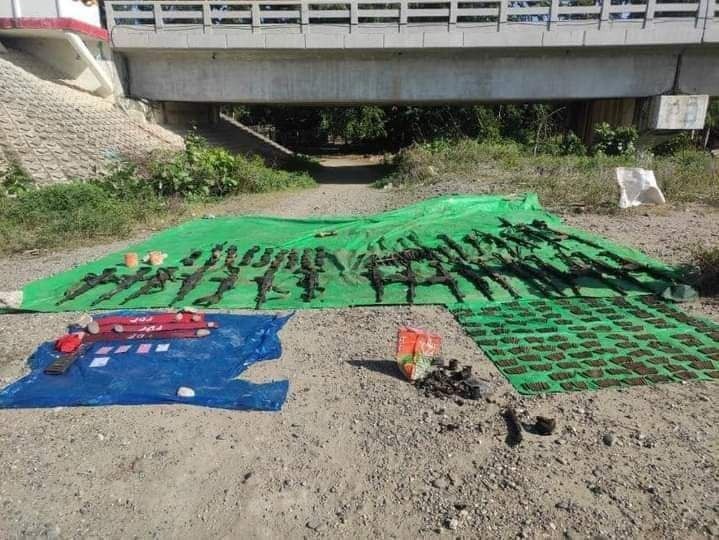UN expert: Member-states should engage with NUG to find Myanmar crisis solution
Other United Nations member-states should follow Malaysia’s lead and engage with Myanmar’s parallel civilian National Unity Government in efforts to help resolve the post-coup crisis in that country, a U.N. expert said Thursday. Additionally, the Association of Southeast Asian Nations needs a new approach in dealing with the Burmese junta to ensure it puts Myanmar back on the democratic path like it agreed to more than a year ago, said U.N. Special Rapporteur on Human Rights Tom Andrews, at a press conference at the end of an eight-day visit to Malaysia. “The five-point consensus is meaningless if it sits on a piece of paper,” he said, referring to an agreement struck between ASEAN member states, including Myanmar, on how the junta should move towards restoring democracy. “Its only chance to make a difference is to put it into a meaningful action with a strategy, with an action plan, with a time frame, precisely as the [Malaysian] foreign minister has called for,” Andrews said, referring to Saifuddin Abdullah. Malaysia, which has strongly criticized the Feb. 1, 2021 coup, has also been consistently calling for stronger action from the regional bloc to make the Burmese junta accountable to the consensus it had agreed to in April 2021, but then ignored. “ASEAN must go back to the drawing board and implement a more detailed roadmap to achieving the five-point consensus within an appropriate timeframe,” Saifuddin said at a Shangri-La Dialogue panel in Singapore earlier this month. The five-point agreement reached between ASEAN leaders and Burmese military chief Senior Gen. Min Aung Hlaing on April 24 last year included an end to violence, the provision of humanitarian assistance, an ASEAN envoy’s appointment, all-party dialogue, and mediation by the envoy. ASEAN has not succeeded in implementing any of these points, and most analysts have said the regional bloc, which famously operates by consensus, is to blame for this. Not every country in the 10-member ASEAN is in favor of piling the pressure on its fellow member, which means the bloc cannot be very effective. ‘What Malaysia did is significant’ Last October, Malaysia’s outspoken foreign minister had said Kuala Lumpur would open talks with the NUG if the Burmese junta kept stonewalling in cooperating with ASEAN’s conflict resolution efforts. In February, he met his NUG counterpart Zin Mar Aung via video conference, following that up with an in-person meeting in Washington on May 16 after the United States-ASEAN Special Summit. During an interview in May with BenarNews, Saifuddin had said that many in ASEAN were frustrated that the Myanmar military was ignoring the five-point consensus. “I think we need to be more creative and that is why, for example, we [need to] start naming the stakeholders …the NUG, … all of them,” Saifuddin told BenarNews. The U.N.’s Andrews said he believed talking with the NUG was a correct move by an ASEAN member-state such as Malaysia – one that other nations should follow. “Let’s be clear who is legitimate here and who is not legitimate,” he said. “The National Unity Government is made up of people who were elected by the people, and also people who represent ethnic communities that are critically important to the fabric and the future of Myanmar. I highly recommend – and I am glad the [Malaysian] foreign minister here has engaged with the NUG and I [am] recommending – that all countries in the United Nations…do the same.” ASEAN’s engagement with the NUG will be a good initiative, said analyst Md. Mahbubul Haque of University Sultan Zainal Abidin. “If anyone really supports the struggle for democracy and the overall human rights situation in Myanmar, it is very necessary to engage with the NUG. Currently the NUG is representing major political forces including various ethnic minorities,” he told BenarNews. “What Malaysia did is significant because it came from an ASEAN member-state. But right now, we cannot expect that all members will follow the Malaysian stand, because of [their own] geopolitical interests.” Another analyst, Aizat Khairi of Kuala Lumpur University, said that ASEAN’s engagement with the NUG would give the Burmese junta the required push it needs. “The junta will not be happy but it will provide the pressure needed to make them be more open and ready to go to the next level of negotiation with other parties in Myanmar,” he told BenarNews. The U.N. expert said in a statement issued Thursday that Saifuddin had urged ASEAN to move from a policy of “noninterference” to one of “non-indifference.” BenarNews is an RFA-affiliated online news service.




